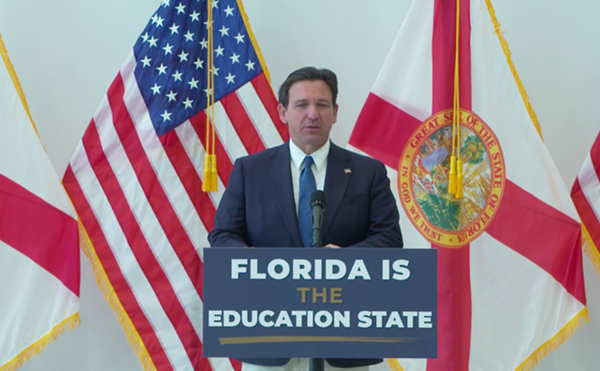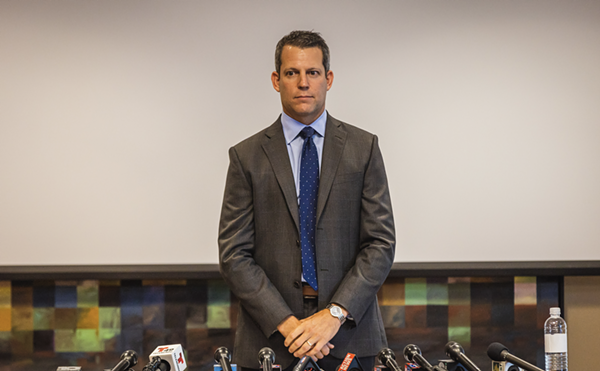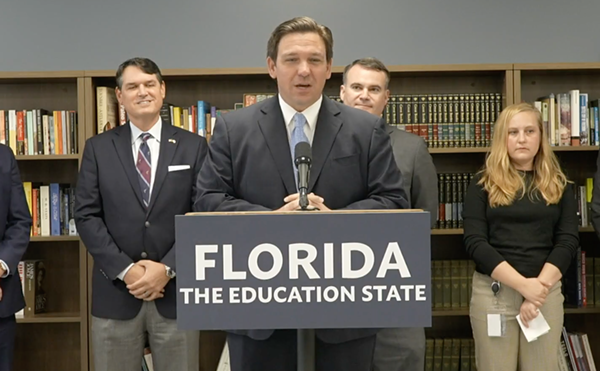In North Carolina last week, three members of the conservative legislature’s ultraconservative freedom caucus announced an investigation into election fraud in the state. So we’re clear: Not only did Donald Trump win North Carolina, but the state’s Republicans improved their position in the legislature, won a U.S. Senate race, and swept nearly all of the statewide contests.
Even so, state Rep. Jeff McNeely (pictured) said, there were reports of “machine tampering and votes being switched because of modems.” They drew from a hat a “random” location to begin: Durham County—coincidentally, the most Democratic spot in North Carolina.
The absurdity of this project was self-evident. It’s illegal in North Carolina to connect voting machines to the internet, and most counties use paper ballots anyway. In addition, the state already audited a random sampling of 200 precincts and found discrepancies in just 13, each affecting three or fewer votes.
I’m not sure whether McNeely knew that and wanted the headlines, or whether he’s gone through the looking glass. But across the country, diehards have proclaimed their cultish fealty to former president Donald Trump by promulgating his Big Lie that Joe Biden wasn’t legitimately elected. Eleven months after Election Day—nine months after the insurrection that tried to overturn its results—a not-insignificant number of Republicans still pretend that there are serious questions about the last election.
And not all of them are backbenchers. (The leader of the North Carolina freedom caucus, Rep. Keith Kidwell, is the state House whip; he’s also reportedly a dues-paying Oath Keeper.) Arizona’s Senate leader pushed through a debacle of a conspiracy-driven election “audit.” Republican leaders in Wisconsin and Pennsylvania have made similar moves. Some Florida Republicans want to audit that state’s election, too—or at least election machines in its big counties—despite Trump’s victory there.
On Saturday in Iowa—joined by Sen. Chuck Grassley, two congresswomen, and the state party chair—Trump spent nearly an entire rally complaining about the “election fraud of the 2020 presidential election.” On Sunday, Rep. Steve Scalise, the second-highest-ranking House Republican, refused to say on Fox News Sunday that the election wasn’t stolen.
These absurd proclamations have served as the impetus for a wave of restrictions to ballot access and may provide the justification for Republicans legislatures (or a Republican Congress) to reject Democratic electoral slates in 2024 and crown Trump (or another Republican) president.
As the political scientists Steven Levitsky and Daniel Ziblatt—authors of the seminal work of the Trump era, “How Democracies Die”—recently explained in The Atlantic: “When contemporary democracies die, they usually do so via constitutional hardball. Democracy’s primary assailants today are not generals or armed revolutionaries, but rather politicians … who eviscerate democracy’s substance behind a carefully crafted veneer of legality and constitutionality.”
In a more representative democracy, voters could punish Republicans for their anti-democratic scheming. But not here, they continued: “Countermajoritarian institutions [e.g., the U.S. Senate and the Electoral College] shield Republicans from genuine competition. By allowing Republicans to win power without national majorities, this constitutional welfare allows the GOP to pursue extremist strategies that threaten our democracy without suffering devastating electoral consequences.”
The fault for our democracy’s decline and fall doesn’t just lie with Trump and the constitutional anachronisms his party is exploiting, of course. There’s plenty of blame to go around: Fox News, which has been “promoting lies, and then reporting their traction as national news” for 25 years, as Washington Post media critic Erik Wemple put it; and Facebook, the great misinformation trafficker, have poisoned the well of public discourse.
There’s also an economic approach that over a generation has shifted U.S. wealth from the middle class to the richest Americans, breeding the kind of anxiety that demagogues exploit. According to the Federal Reserve, as of June, the middle 60% of households owned 26.6% of national assets, while the top 1% owned 27%. That’s the first time the super-rich had more than the middle class.
The rich have gotten richer, while the middle class owned less and less. But even under Democratic control, Congress only nibbled at the edges of economic inequality, if that.
Biden’s domestic agenda sought to address this problem through improved health care access, child tax credits, free community college, and increased taxes on high earners. But it, too, has fallen victim to those countermajoritarian institutions.
Republican filibusters forced Democrats to pare down their infrastructure bill and combine their social and climate priorities into a massive reconciliation package. The composition of the Senate—an equal split, though Democrats represent 40 million more people than Republicans—then effectively gave two Democratic moderates vetoes, which they’ve used to make arbitrary demands that threaten both pieces of legislation.
Meanwhile, with Trump criticizing Minority Leader Mitch McConnell for not filibustering a bill to lift the debt ceiling—thereby averting a deep global recession—Senate Republicans say they won’t help out again when the debt ceiling comes back in December. Yet, despite the threat of economic havoc, Democratic Sen. Joe Manchin says he won’t tweak filibuster rules for the debt ceiling.
“The filibuster is the only thread we have in America to keep democracy alive and well,” he said.
I’m not sure whether Manchin knows how absurd that statement is, or whether he’s gone through the looking glass. The filibuster doesn’t extinguish the fire. It gives gasoline to the arsonists.
“Beyond the acute crisis facing American democracy, however, is a deeper problem: the radicalization of the Republican Party,” wrote Levitsky and Ziblatt. “Unless and until the GOP recommits itself to playing by democratic rules of the game, American democracy will remain at risk. Each national election will feel like a national emergency.”
I bang this drum not because there’s an easy answer, but because complacency guarantees failure. Our democratic crisis is here. The first step to fixing it is acknowledging its presence.
UPDATED: 1011/21 4 p.m. Updated to make clear North Carolina voting rules.
Get more Informed Dissent at billman.substack.com.
Send anonymous news tips to [email protected]. Support local journalism in these crazy days. Our small but mighty team works tirelessly to bring you news on how coronavirus is affecting Tampa and surrounding areas. Please consider making a one time or monthly donation to help support our staff. Every little bit helps.
Subscribe to our newsletter and follow @cl_tampabay on Twitter.


















